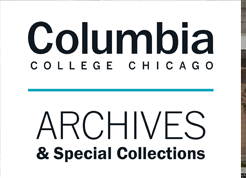Document Type
Article
Loading...
Publication Date
Fall 2009
Keywords
African National Congress, Ben Chavis, Basil Clunie, Coca-Cola Bottling Company United (U.S.), Angela Davis, De Beers Botswana Mining Company, Howard University, Nelson Mandela, Mozambique, National Alliance Against Racist and Political Repression, Northwestern University, Oberlin College, Ronald Reagan, Albie Sachs, Stop Apartheid Rugby Tour, Margaret Thatcher, Truth and Reconciliation Commission (South Africa), Harold Washington, Wilmington Ten
Disciplines
Political Science | Political Theory | Race and Ethnicity | Race, Ethnicity and Post-Colonial Studies | Work, Economy and Organizations
Abstract
Length: 96 minutes
Oral history interview of Lisa Ann Brock by Amanda Anderson
Dr. Brock was born and raised in Glendale, Ohio. She holds a BA in history from Howard University and a doctorate in history from Northwestern University. She has spent most of her life involved in social justice activism and higher education. She was the founding Academic Director of the Arcus Center for Social Justice Leadership at Kalamazoo College for ten years. She currently works as a JEDI (Justice, Equity, Diversity & Inclusion) consultant.
Recommended Citation
Anderson, Amanda. "Interview with Lisa Ann Brock" (Fall 2009). Oral Histories, Chicago Anti-Apartheid Collection, College Archives & Special Collections, Columbia College Chicago. http://digitalcommons.colum.edu/cadc_caam_oralhistories/21
Creative Commons License

This work is licensed under a Creative Commons Attribution-NonCommercial-No Derivative Works 4.0 International License.
Included in
Political Theory Commons, Race and Ethnicity Commons, Race, Ethnicity and Post-Colonial Studies Commons, Work, Economy and Organizations Commons



Biography and Comments
Dr. Brock begins by describing her childhood, growing up in a small town with a large, close-knit extended family in the same neighborhood and attending a racial integrated school system. She describes the trajectory of her education, her brief time at Oberlin College, what drove her to transfer to at Howard University, and how she first became interested in pursuing history while there. She explains how she first became an activist at Howard, joining the National Alliance Against Racist and Political Repression. She talks about her time as a doctoral student at Northwestern University studying African history. She recalls her reaction to several events, Reagan’s presidency, Howard Washington’s death, and their effects on the anti-Apartheid movement. She describes living in war-torn Mozambique and her involvement with the Chicago-Alexandra Sister Community. She details her participation in the divesture movement and her thoughts on the Truth and Reconciliation Commission. She concludes by reflecting on the present state of South Africa and the problems they still wrestle with.
The interviewer conducted this oral history as part of his/her coursework for the Fall 2009 class, Oral History: The Art of the Interview. This interview supports the scope and content of the Chicago Anti-Apartheid Movement Collection at the College Archives & Special Collections department of Columbia College Chicago. Contact archives@colum.edu for more information and to view the collection.